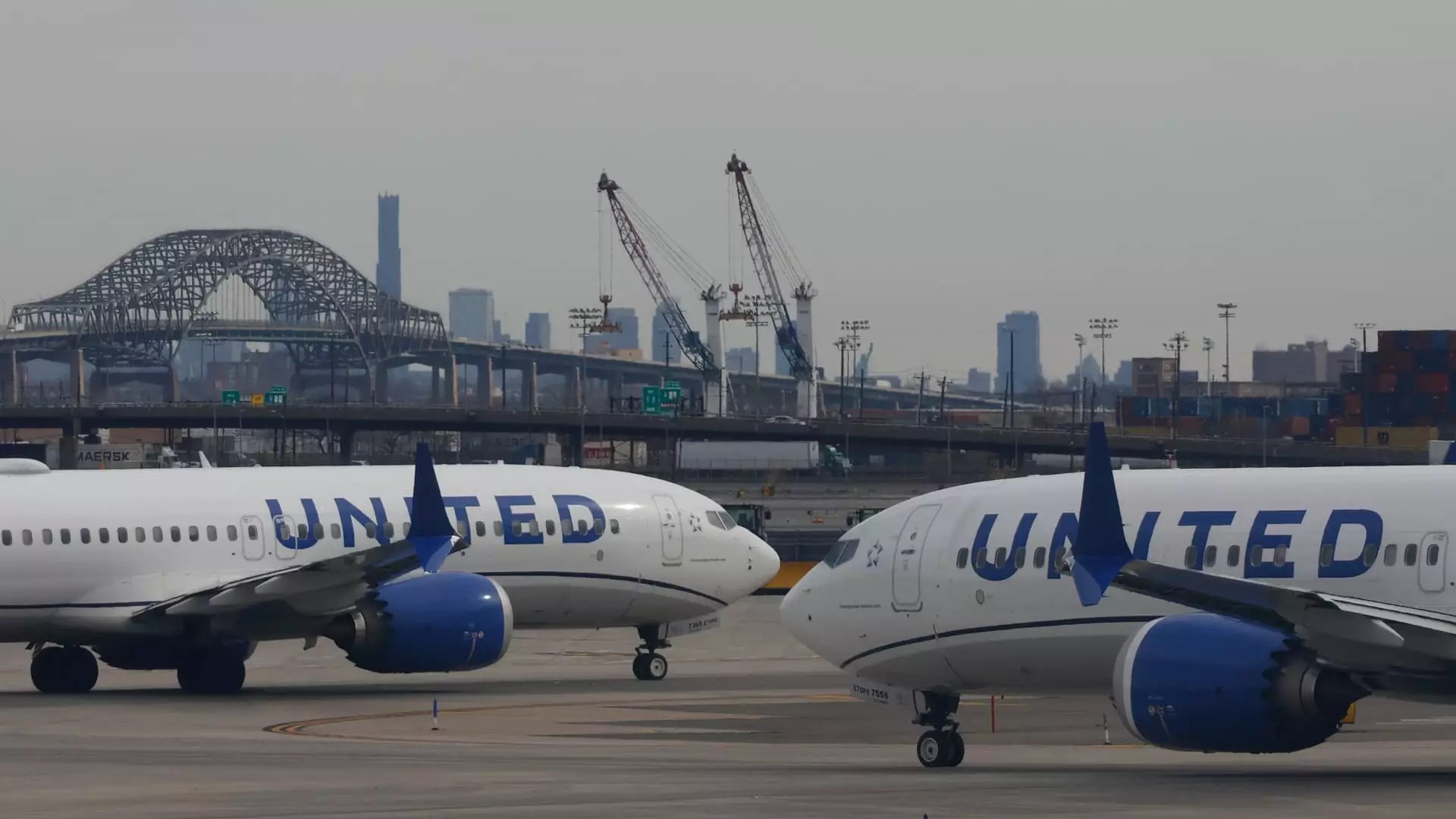United Airlines recently announced a staggering reduction of 35 daily flights from Newark Liberty International Airport. This decision comes on the heels of an unprecedented chaos that has left thousands of passengers languishing on tarmacs, frustrated by intolerable delays that stretch on for hours. CEO Scott Kirby’s admission of blame towards air traffic controller shortages and technology failures underscores a systemic breakdown that should raise serious concerns about operational stability and customer trust.
With over 300 flights delayed within a single day, not to mention the cumulative chaos of more than 1,400 delays and cancellations earlier this week, it is clear that the systemic issues plaguing United have reached a boiling point. This state of disarray reflects poorly not only on the airline but also highlights significant vulnerabilities within the broader air traffic system managed by the FAA.
Leadership and Communication: A Recipe for Discontent
It is disappointing to observe how leadership seems to falter in moments of crisis. Kirby’s efforts to communicate with customers are commendable, yet the defensive tone in his message misses the mark in terms of accountability. The unfortunate reality is that while he cites “no other choice,” this isn’t merely a reactive strategy to protect customers—it represents a failure to anticipate and proactively resolve the issues long before they escalated into full-blown chaos.
Moreover, the FAA’s acknowledgement of staffing shortages and its subsequent proposal of new incentives seem bureaucratic and reactionary. Why, after years of witness reports, has this issue been allowed to worsen? During periods when air travel saw dramatic dips due to the pandemic, did the FAA not foresee the need for resilience planning? The ambiguity surrounding communication from the FAA leaves a gaping hole in public trust as passengers are left stranded with little clarity regarding their travel futures.
The Way Forward: Embracing Accountability and Innovation
As we look at the aftermath of this mess, it’s especially troubling for those who rely on air travel for business or family commitments. It’s time for airlines, regulators, and stakeholders to come together, embracing accountability and innovation rather than merely pointing fingers. The aviation sector needs a collective ethos that prioritizes reliability and customer satisfaction.
United Airlines must leverage this moment to rethink its strategy regarding staffing, training, and technology. Perhaps it should consider a partner-driven approach where it invests in staffing solutions and technology enhancements alongside other industry players. Furthermore, transparency with customers about operational challenges—including proactive notifications—could go far in restoring faith.
Airlines are not merely transportation services; they are lifelines connecting people. United’s actions in the coming weeks will be telling. Will it focus on cursory fixes or will it take bold steps towards improving its infrastructure and staffing? The answers will reshape not just its future, but the very fabric of air travel experiences for countless passengers.


Leave a Reply